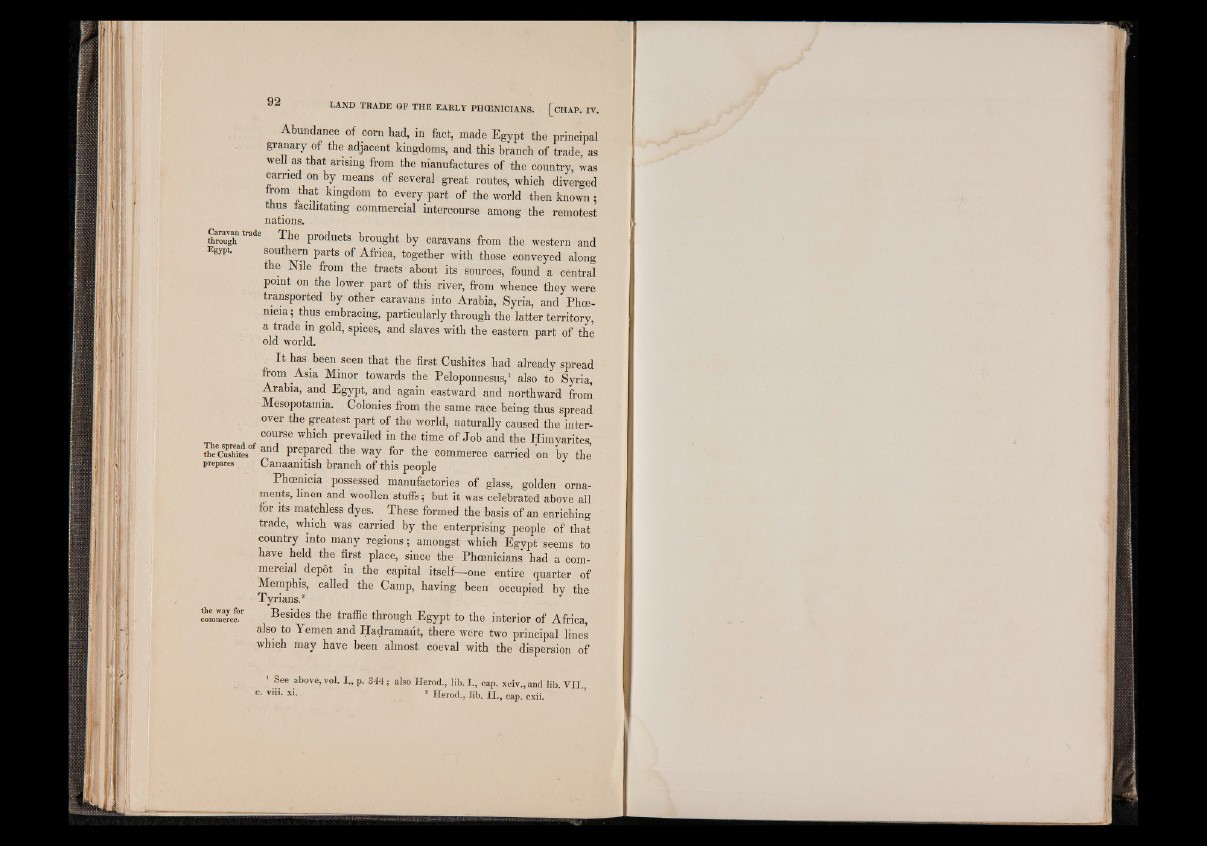
Abundance of corn had, in fact, made Egypt the principal
granary of the adjacent kingdoms, and this branch of trade, as
well as that arising from the manufactures of the country, was
carried on by means of several great routes, which diverged
from that kingdom to every part of the world then known ;
thus facilitating commercial intercourse among the remotest
nations.
thro™trade products brought by caravans from the western and
Egypt. southern parts of Africa, together with those conveyed along
the Nile from the tracts about its sources, found a central
point on the lower part of this river, from whence they were
transported by other caravans into Arabia, Syria, and Phoenicia
; thus embracing, particularly through the latter territory,
a trade m gold, spices, and slaves with the eastern part of the
old world.
It has been seen that the first Cushites had already spread
from Asia Minor towards the Peloponnesus,1 also to Syria,
Arabia, and Egypt, and again eastward and northward from
Mesopotamia. Colonies from the same race being thus spread
over the greatest part of the world, naturally caused the inter-
1 I C0UrSe wLich Preyailed in the time of Job and the Himyarites,
theoShites0 prepared the way for the commerce carried on by the
prepares Canaanitish branch of this people
Phoenicia possessed manufactories of glass, golden ornaments,
hnen and woollen stuffs; but it was celebrated above all
for its matchless dyes. These formed the basis of an enriching
trade, which was carried by the enterprising people of that
country into many regions ; amongst which Egypt seems to
have held the first place, since the Phoenicians had a commercial
dépôt in the capital itself—one entire quarter of
Memphis, called the Camp, having been occupied by the
Tyrians.2
commerce. Besides the traffic through Egypt to the interior of Africa,
also to Yemen and Hadramaut, there were two principal lines
which may have been almost coeval with the dispersion of
1 See above, vol. I., p. 344; also Herod., lib. I., cap. xciv., and lib V I I
c’ viii' xi- _ ! Herod., lib. m cap. cxii.